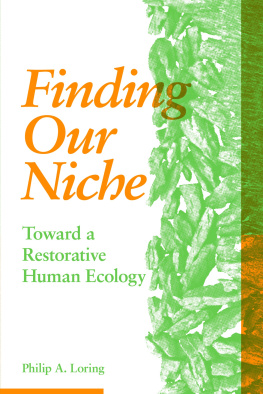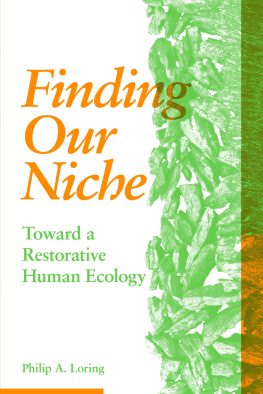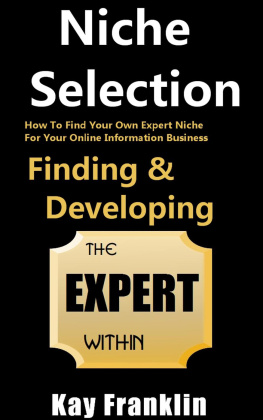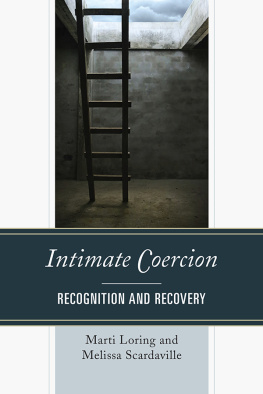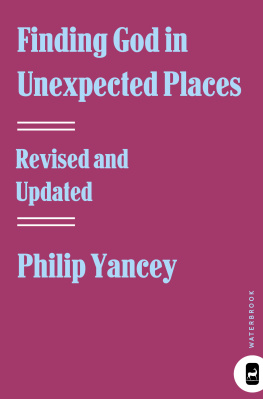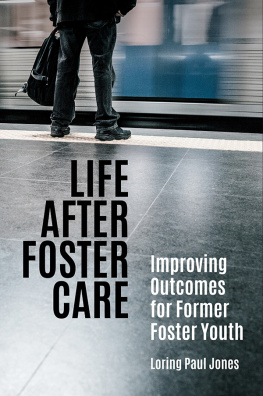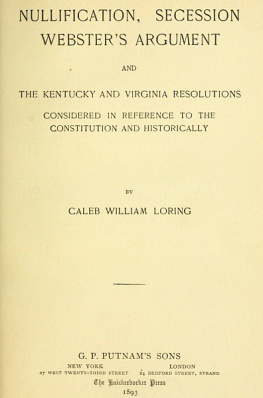Philip A. Loring - Finding Our Niche
Here you can read online Philip A. Loring - Finding Our Niche full text of the book (entire story) in english for free. Download pdf and epub, get meaning, cover and reviews about this ebook. year: 2020, genre: Religion. Description of the work, (preface) as well as reviews are available. Best literature library LitArk.com created for fans of good reading and offers a wide selection of genres:
Romance novel
Science fiction
Adventure
Detective
Science
History
Home and family
Prose
Art
Politics
Computer
Non-fiction
Religion
Business
Children
Humor
Choose a favorite category and find really read worthwhile books. Enjoy immersion in the world of imagination, feel the emotions of the characters or learn something new for yourself, make an fascinating discovery.
- Book:Finding Our Niche
- Author:
- Genre:
- Year:2020
- Rating:3 / 5
- Favourites:Add to favourites
- Your mark:
- 60
- 1
- 2
- 3
- 4
- 5
Finding Our Niche: summary, description and annotation
We offer to read an annotation, description, summary or preface (depends on what the author of the book "Finding Our Niche" wrote himself). If you haven't found the necessary information about the book — write in the comments, we will try to find it.
Finding Our Niche — read online for free the complete book (whole text) full work
Below is the text of the book, divided by pages. System saving the place of the last page read, allows you to conveniently read the book "Finding Our Niche" online for free, without having to search again every time where you left off. Put a bookmark, and you can go to the page where you finished reading at any time.
Font size:
Interval:
Bookmark:
Copyright 2020 Philip A. Loring
All rights reserved. No part of this book may be reproduced or transmitted in any form by any means without permission in writing from the publisher,
except by a reviewer, who may quote brief passages in a review.
Editing: Jenn Harris
Cover design: Evan Marnoch
Printed and bound in Canada
Published by Fernwood Publishing
32 Oceanvista Lane, Black Point, Nova Scotia, B0J 1B0
and 748 Broadway Avenue, Winnipeg, Manitoba, R3G 0X3
www.fernwoodpublishing.ca
Fernwood Publishing Company Limited gratefully acknowledges the financial support of the Government of Canada, the Canada Council for the Arts, the Manitoba Department of Culture, Heritage and Tourism under the Manitoba Publishers Marketing Assistance Program and the Province of Manitoba, through the Book Publishing Tax Credit, for our publishing program. We are pleased to work in partnership with the Province of Nova Scotia to develop and promote our creative industries for the benefit of all Nova Scotians.

Library and Archives Canada Cataloguing in Publication
Title: Finding our niche : toward a restorative human ecology / Philip A. Loring.
Names: Loring, Philip A., author.
Description: Includes bibliographical references and index.
Identifiers: Canadiana (print) 20200327143 | Canadiana (ebook) 20200327178 | ISBN 9781773632872
(softcover) | ISBN 9781773632889 (EPUB) | ISBN 9781773632896 (Kindle) | ISBN 9781773634302 (PDF)
Subjects: LCSH: Human ecology Philosophy.
Classification: LCC GF21 .L67 2020 | DDC 304.2 dc23
Contents
For Cordelia.
In memory of Pat.
Preface
I am a white male, the descendant of settlers living on Indigenous lands. It took me many years to understand what these aspects of my identity mean to myself, to the people around me and to the work that I do as a scientist and sustainability advocate. This book tells part of the story of how I have come to understand my role, and my future, as a settler in this place, a story that is still unfolding.
Parts of the book were written while living in what is now called southern Ontario the ancestral lands of the Attawandaron people and the treaty lands and territory of the Mississauga of the Credit First Nation and parts in Saskatchewan Treaty Six territory and homeland of the Mtis. I pay my respect to this history and the Indigenous people who call these places home; with this work, I hope to honour the special relationship that these and other Indigenous peoples have with their traditional homelands on Turtle Island and around the world. I hope that this book will be received in the spirit of truth and reconciliation for the centuries of harm done to Indigenous peoples and to the planet itself in the name of progress. I have no doubt that many of the ideas I write about here are already well understood by Indigenous peoples, and I thank the many Indigenous individuals who, over the years, have called me friend and colleague and who have freely offered me an opportunity to experience their wisdom, kindness and acceptance. Patrick and Carla Smith, Colin Laroque, Oscar Kawagley, Theresa John, Craig Fleener and Skye Augustine have all been extremely generous in this regard.
In Canada, it is often said that all Canadians are treaty people. Now, not all First Nations in Canada have treaties with the Canadian Government, and where treaties do exist, they are often far from perfect and have failed to stem colonial violence and the continued dispossession of native land by the state. Still, I think there is an important sentiment in this common turn of phrase: that all settlers have important responsibilities to our Indigenous neighbours. In my mind, two of these responsibilities are decolonization and reconciliation. The first means looking to all aspects of our lives, our science, our art and our politics for evidence of the colonial logic of supremacy and replacing it with an ethos of pluralism, diversity, acceptance and humility. The second, reconciliation, is a term that refers to the difficult social process of learning, healing and coming to terms with the great harms that Indigenous peoples around the world have experienced at the hands of settlers. Reconciliation takes hard work at all levels, from federal governments to within individuals hearts and minds. It requires that we dismantle our existing, imbalanced systems of power and privilege, give the land back to Indigenous peoples and then trust, rather than fear, what these actions will mean for us settlers. Above all, though, I think we need to learn to listen better, to let people tell their stories. This is what Ive tried to do in the pages that follow. This book is very much a part of my own ongoing story of decolonization and reconciliation. Turtle Island is the only home I have ever known yet I barely know it in comparison to the Cree, Mtis, Athabascan, Iupiaq and Coast Salish individuals that I call and have called friends. I am a settler, one trying to learn how to better live and belong in this amazing land.
Author and agriculturalist Wes Jackson has said and written many times that we need to learn how to be native to this place. I imagine this sentiment, coming from a white man, may frustrate or even anger many Indigenous peoples. One cannot simply learn to be Indigenous. Yet I believe that we must learn something like it belonging , perhaps. Indigenous author Robin Wall Kimmerer calls it being naturalized in her beautiful book , Braiding Sweetgrass,
Being naturalized to place means to live as if this is the land that feeds you, as if these are the streams from which you drink, that build your body and fill your spirit. To become naturalized is to know that your ancestors lie in this ground. Here you will give your gifts and meet your responsibilities. To become naturalized is to live as if your childrens future matters, to take care of the land as if our lives and the lives of all our relatives depend on it. Because they do.
We need to learn to walk and act in the spirit of kinship with the natural world if we want the next seven generations of children who will live here, Indigenous and settler alike, to know a Turtle Island anything like the home we cherish today. This journey of personal exploration and reinvention must happen in conversation with First Peoples, and it needs to be a frequent and intimate conversation initiated in the spirit of pimatisiwin in a good way, as the Cree say. We need to emphasize healing, modesty, apology, sharing, learning and respect. It will not be easy or comfortable. It will involve anger, fear, mistakes and many false starts.
As such, this book is the start of a journey, not the end. Like some others before it, this book argues that paradigm change is necessary for pursuing sustainability, and Ive tried in particular to uncover building blocks on which an alternative way of thinking and living can be built. When an individual person is moving from one paradigm to another, they experience what anthropologists call a liminal stage. Most books on topics like sustainability move the reader into this liminal, or transitional, space by showing contradictions or problems in the world around them. Too often, however, these books conclude while the reader is still in this ambiguous, liminal space. The result is that the reader feels moved and inspired, but impotent unsure what to do next. I felt this way when I first read Ishmael , by Daniel Quinn, a book that has inspired my career and many of the ideas in this book. I still felt this way after rereading the books in his Ishmael trilogy, and when I had the chance to ask Daniel what he thought was next, he said only, I thought that was obvious. It took years of field experience before I realized what was missing from Ishmael and books like it. This book is my attempt at filling that gap.
Next pageFont size:
Interval:
Bookmark:
Similar books «Finding Our Niche»
Look at similar books to Finding Our Niche. We have selected literature similar in name and meaning in the hope of providing readers with more options to find new, interesting, not yet read works.
Discussion, reviews of the book Finding Our Niche and just readers' own opinions. Leave your comments, write what you think about the work, its meaning or the main characters. Specify what exactly you liked and what you didn't like, and why you think so.

